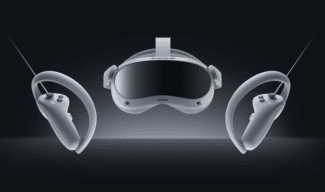Sales of Pico 4 aren’t meeting expectations, according to a report from a Chinese news outlet.
Sina Technology’s report cites “multiple insiders” at Pico. The company apparently hoped to sell more than 1 million headsets this year, but that target is unlikely to be met. And even before this, an initial supply order of 2.5 million units was apparently cut to 1.8 million.
This however contradicts Pico’s only public statement on sales. In mid-October, the week before the Pico 4 western launch, the company warned some preorders in Europe would be delayed due to “unprecedented global demand”.
The report also says the ByteDance acquisition last year created internal struggles at Pico, with the rapid expansion of the company leading to “factional disputes” between original employees and new staff added by the tech giant. “At present, Pico is like a team playing on a football field, but the team is divided, everyone plays their own way, and they don’t work together to do one thing,” one source said.
A former Pico employee reportedly said employees rarely use their own products and are “aware of the gap between Pico headsets and Quest 2″, presumably referring to software and content.
Sina’s report also includes an estimate from a former HTC Vive “senior technical expert” that ByteDance is losing around $140 on each Pico 4. Meta executives had in the past confirmed Quest 2 was also sold at a loss, but in August its price was raised by $100.
ByteDance is new to the western consumer VR market. Despite Pico 4’s superior hardware, its software and content library are still far behind Quest 2. Developers of non-exclusive Quest games have been porting their titles to Pico’s store, but it will take more time for the lineup to be truly competitive. ByteDance will also need to fund appealing exclusives to compete with the likes of Beat Saber and Resident Evil 4. Longer term, it may even need to acquire entire game studios as Meta has in recent years. But with TikTok revenue expectations falling and toughening global economic conditions, will it really have the same willingness and conviction to invest in VR?





